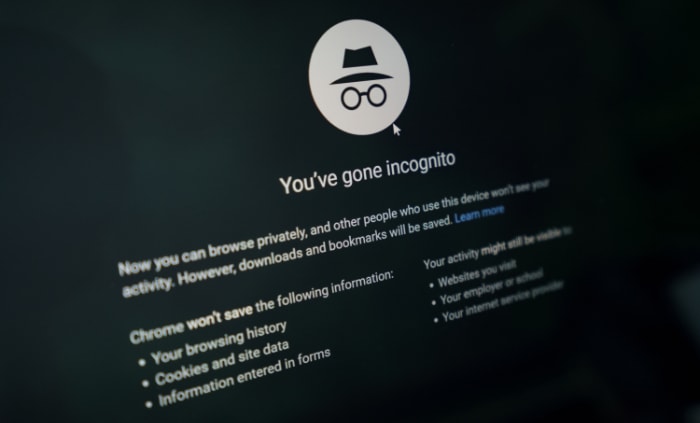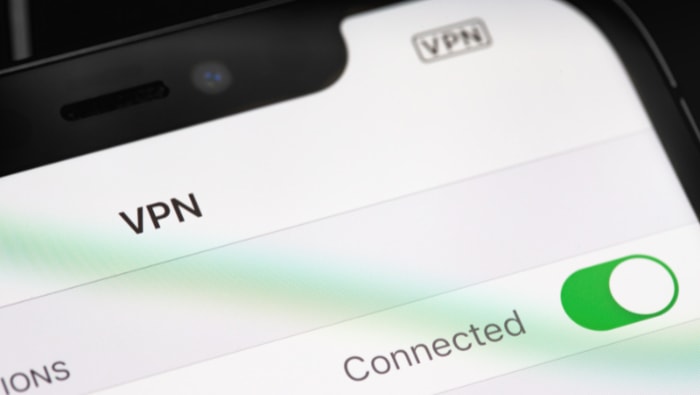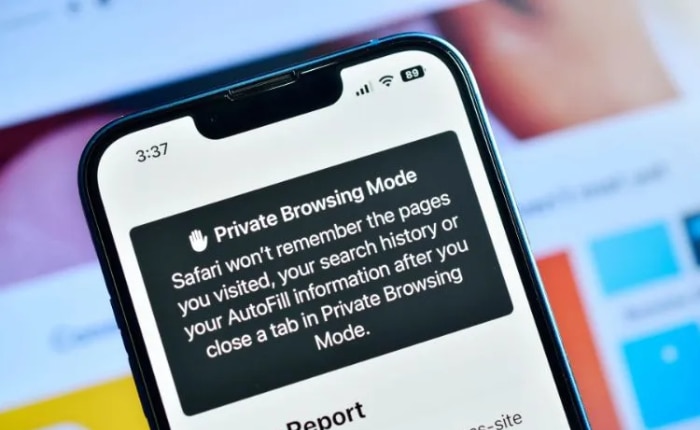Incognito Mode vs. VPN: Battle of Anonymity

Online privacy has rapidly climbed the ranks of global concerns, especially in an era where virtually every action, search, and click can be monitored and stored. As digital surveillance grows and online threats become more sophisticated, tools that promise to shield our online activities have gained significant traction.
Two such tools, widely recognized and used for varied reasons, are Incognito Mode and Virtual Private Networks (VPNs). While both offer a degree of privacy, their purposes, functionalities, and levels of protection differ vastly.
What is Incognito Mode?
Incognito Mode, often recognized by various names like “Private Browsing” or “InPrivate Mode” across different browsers, stands as a fundamental privacy tool for countless internet users. However, its capabilities and functions are sometimes misunderstood.
Let's break down its definition, workings, and benefits.
Understanding Incognito Mode
Incognito Mode is a feature available in most modern web browsers, enabling users to browse the internet without saving browsing history, cookies, site data, or form inputs on the local device. It's essentially a temporary browsing session that is isolated from the main session.
How Incognito Mode Works
When you activate this mode, the browser creates a separate, temporary session. This session does not carry over your previous browsing data like cookies or history.
As you surf the web, the browser refrains from storing the sites you visit or the searches you conduct. Once you close the incognito window, all the information from that session is discarded, ensuring no one can easily see where you've been online on that device.
Benefits of Using Incognito Mode
- Privacy on Shared Devices: If you're using a shared computer, perhaps at a library or a shared workspace, Incognito Mode ensures your browsing session remains private and won't be accessible to the next person using the device.
- Clean Slate Browsing: Without previous cookies and site data, you experience websites without any personalized content, which can be useful for unbiased research or shopping without being influenced by past searches.
- Session Isolation: Using Incognito can also be helpful if you need to log into multiple accounts simultaneously on one website, as it doesn’t carry over sessions from the standard browsing mode.
What are VPNs (Virtual Private Networks)?
As the digital age advances, the need for enhanced online privacy and security becomes paramount. Among the tools that have emerged to address these concerns, Virtual Private Networks, commonly known as VPNs, stand out for their comprehensive approach.
Let's explore what VPNs are, how they function, and the benefits they offer.
Understanding Virtual Private Networks
VPNs are secure networks that encrypt and reroute your internet connection through a remote server. By doing this, they mask your original IP address and make your online actions harder to track, ensuring a higher level of confidentiality than regular browsing.
How VPNs Work
When you connect to a VPN, it establishes an encrypted tunnel between your device and the remote server. All the data that passes through this tunnel is scrambled, ensuring that third parties, from cybercriminals to curious ISPs, can't easily interpret it.
Once the data reaches the server, it is decrypted and sent to its final destination with a new IP address, masking your real one.
Key Benefits of Using VPNs
- Enhanced Online Privacy: VPNs effectively hide your real IP address and location, making your online activities more anonymous and private.
- Data Security: The encryption offered by VPNs ensures your personal information, from login credentials to sensitive transaction details, remains secure from potential threats.
- Access to Geo-restricted Content: With the ability to choose servers from different countries, users can bypass regional content restrictions on websites and streaming platforms.
- Protection on Unsecured Networks: When accessing the internet via public Wi-Fi, like in cafes or airports, VPNs provide an added layer of security, safeguarding your data from potential eavesdroppers.
Key Differences Between Incognito Mode and VPNs

In the vast landscape of digital privacy tools, both Incognito Mode and VPNs hold their distinct places. While they are both designed to offer users a heightened sense of privacy, they operate differently and serve unique purposes.
Data Protection and Storage
Incognito Mode is primarily about local data. It prevents your browser from storing browsing history, cookies, site data, and form inputs on your device. Once you close the incognito window, traces of your session vanish from your computer.
On the other hand, VPNs focus on data protection during transmission. They encrypt your internet traffic, making it unreadable to outsiders. This protection extends beyond the browser, safeguarding all online activities on your device.
Visibility to ISPs and Other Entities
When you use Incognito Mode, your Internet Service Provider (ISP) can still see which websites you visit. The mode doesn’t cloak your online activities; it simply ensures they aren't logged on your device.
VPNs offer a more comprehensive shield. By routing your traffic through a secure server and masking your IP address, VPNs prevent ISPs, advertisers, and potential snoopers from determining your online destinations or accessing the content of your communications.
Geolocation and Access to Content
Incognito Mode doesn't change or mask your IP address. As such, it won't help you bypass geo-restrictions on content. Your location remains visible to websites and online services, which can block or tailor content based on where you are.
VPNs enable you to select servers in various countries, effectively changing your perceived location. This functionality allows users to access content that might be regionally restricted, be it a video, news article, or entire streaming library.
Protection Against Trackers
While Incognito Mode limits the storage of cookies and site data during your session, trackers can still monitor your online behavior during that session. Once the session ends, the data isn't stored on your device, but entities can still gather real-time data.
VPNs provide broader protection, especially when paired with additional privacy tools. They mask your IP address, making it harder for advertisers and websites to build detailed profiles about you.
However, they don’t inherently block trackers; other tools like ad-blockers or tracker-blockers are needed for that.
Common Misconceptions
The world of online privacy is complex, and with complexity often comes misunderstanding. Both Incognito Mode and VPNs are frequently surrounded by myths and misconceptions.
Clearing up these misunderstandings is essential for users to utilize these tools effectively and maintain realistic expectations.
Complete Anonymity with Incognito Mode
One of the most prevalent myths is that Incognito Mode grants complete online anonymity. While it does prevent local storage of browsing data, it does not make users invisible online.
Internet Service Providers, websites visited, and even employers (if browsing at work) can still track user activity during an incognito session.
Incognito Mode Protects Against Malware and Phishing
Another misunderstanding is the belief that Incognito Mode also acts as a barrier against online threats like malware or phishing sites. It doesn't. Its main purpose is to prevent local data storage.
Users are just as susceptible to online threats in incognito as they are in regular browsing mode.
All VPNs are Created Equal
Not every VPN offers the same level of protection or has the same policies. Some might log user data, while others prioritize a no-log policy.
Additionally, the strength of encryption, server locations, and additional features can vary widely. It's crucial to research and choose a VPN provider that aligns with individual privacy needs and expectations.
Incognito Mode Speeds Up Browsing
While Incognito Mode might offer a ‘fresh' browsing experience without cached data or cookies, it doesn’t inherently speed up the internet connection. Any perceived speed might be due to loading a site without previously stored data, but the actual connection speed remains unchanged.
VPNs Always Slow Down Your Internet
While encryption and routing traffic through a remote server can introduce some latency, the impact on speed is not always significant. High-quality VPNs invest in infrastructure to minimize slowdowns.
Some users might even find certain content loads faster with a VPN if their ISP had been throttling their connection.
Use Cases: When to Use Which

The digital realm is vast and diverse, requiring various tools for different tasks. When considering privacy tools like Incognito Mode and VPNs, understanding their distinct strengths can guide users to make the right choice for their specific needs.
Let's explore the scenarios where one might be more beneficial than the other.
Browsing Sensitive Information on Shared Devices
If you're using a computer in a library, at work, or any other shared device, and you want to quickly check personal emails, view private documents, or conduct a confidential search, Incognito Mode is a handy tool. It ensures that once you close the browser, your activity won't leave a trace on the device.
Making Online Purchases
For online transactions, it's essential to secure your data from potential eavesdroppers. VPNs encrypt your internet connection, safeguarding your personal information, credit card details, and other sensitive data from malicious entities.
Researching Confidential Topics
Whether you're a journalist working on a sensitive story or just someone curious about a controversial topic, using a VPN can help mask your interest and intentions from ISPs and potential surveillance.
Streaming Content from Other Regions
One of the significant benefits of VPNs is the ability to bypass regional restrictions. If there's a show or movie available only in another country or region, a VPN allows you to connect to a server in that location and access the content as if you were there.
Temporary Browsing without Saving History
For those instances when you're planning a surprise party, looking for gifts, or simply browsing topics you'd rather not appear in your search history, Incognito Mode is your go-to. It offers a clean slate without the need to clear out history or cookies afterward.
Protecting Data on Public Wi-Fi
Public Wi-Fi networks, like those in airports or cafes, can be breeding grounds for cyber threats. VPNs create an encrypted tunnel for your data, making it difficult for any potential threat actors lurking on the same network to intercept or decipher your activities.
Drawbacks of Popular Privacy Tools
Every tool, regardless of its purpose, comes with its set of advantages and disadvantages. While Incognito Mode and VPNs offer users increased privacy in various scenarios, it's essential to be aware of their limitations.
Let's examine the drawbacks associated with both these privacy tools to help users make well-informed choices.
Incognito Mode
False Sense of Complete Privacy
Many users mistakenly believe that Incognito Mode offers complete anonymity online. While it does prevent local storage of browsing data, external entities like Internet Service Providers, websites, and employers can still monitor user activity.
This can lead to an over-reliance on Incognito Mode for tasks better suited to more secure tools.
Lack of Encryption
Incognito Mode focuses on not saving browsing history, cookies, and site data. However, it does not encrypt your online traffic.
This means that while your local device remains free from traces of your browsing session, the data you send and receive can still be intercepted or viewed by third parties.
VPNs
Speed Reductions Due to Encryption Overhead
Especially with free VPN services, users might experience slower internet speeds. The encryption process, which safeguards your data, can introduce latency.
Though many premium VPNs, such as NordVPN, minimize this speed drop by investing in high-quality infrastructure, free VPNs might not prioritize optimal speeds or might have congested servers.
Trust Issues with VPN Providers
The market is flooded with numerous VPN services, each boasting various features and policies. While many reputable VPNs, including NordVPN, have strict no-log policies and are committed to user privacy, some might not adhere to these standards.
Free VPNs, in particular, might log user data and sell it to third parties to generate revenue. When seeking a reliable VPN, it's worth considering trusted names like NordVPN that have consistently received praise for their user-centric approach.
Conclusion
With the myriad of tools available to enhance online privacy, discerning between their benefits and drawbacks becomes imperative. Incognito Mode and VPNs, while both valuable, serve distinct purposes.
Incognito Mode offers a level of discretion on shared devices and for temporary browsing sessions without permanent data storage. On the other hand, VPNs provide robust encryption and IP masking, ensuring a higher degree of online anonymity, especially with trusted providers like NordVPN.
However, like any tool, neither is flawless. Recognizing these limitations and knowing when to utilize each tool can greatly amplify the security and privacy of one's digital footprint.
By making well-informed choices, users can confidently traverse the digital realm while safeguarding their personal information and browsing habits.


